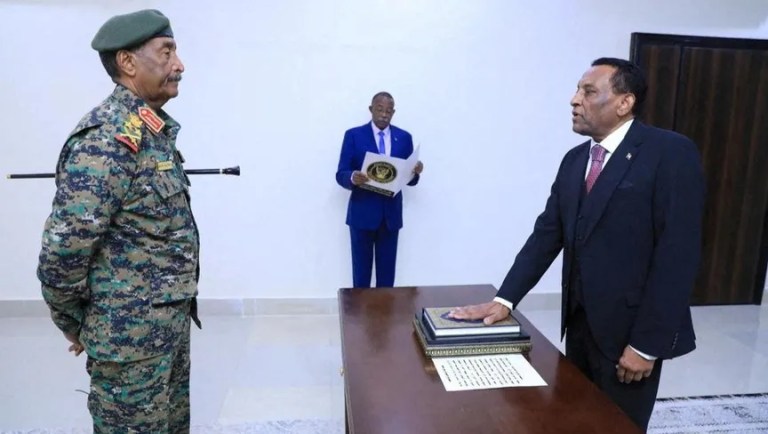The Upcoming Government: Can Kamal Idris Overcome the Complexities of the Sudanese Scene?

Sudan Events – Agencies
Prime Minister Dr. Kamal Idris is carefully and cautiously navigating the battle of forming the transitional government, in an effort to gain the broadest possible support for the cabinet he is set to announce—one that will lead the country in the upcoming period. Following his appointment, Idris met with Sudan Liberation Movement leader Mini Arko Minawi and Justice and Equality Movement leader Jibril Ibrahim in an effort to reassure the Juba Peace Agreement partners and preempt criticism regarding the dissolution of Juba Peace ministers along with the rest of the government. According to circulating reports, both peace partners expressed optimism about Kamal’s appointment in statements following their individual meetings with the Prime Minister, leaving with impressions that may help ensure the upcoming government’s ability to function without tension.
Extensive Consultations:
Official sources revealed that the Prime Minister has begun contacting university professors, experts, and prominent Sudanese figures both inside and outside the country to consult and suggest candidates from among independent professionals for the new cabinet, which the constitutional document limits to no more than 26 ministers. Idris has recently held meetings with political forces, youth groups, national figures, and technocrats. Just yesterday, he met with a delegation from Sudanese universities as part of his ongoing consultations to form the government. According to well-informed sources, the number of ministries may be reduced from 26 to 16.
Professor Mahjoub Mohamed Ahmed, Secretary-General of the University Professors Organization (MAISU), stated in a press interview after his meeting with the Prime Minister that Kamal requested a comprehensive meeting with all university professors to ensure coordination and effective consultation.
Observers believe that the Prime Minister’s meeting with university professors signals his intention to rely entirely on technocrats—especially in the support committees for ministerial work—during the transitional period. Idris himself initiated contact with several professors and experts to help choose the members of the new government.
Multiple Options:
Reliable information has recently emerged suggesting the Prime Minister plans to reduce the number of ministries to 16 by merging those with overlapping responsibilities. He also intends to appoint two deputies or assistants to oversee key portfolios such as public services—choosing individuals with extensive experience in those fields. Among the names frequently mentioned is Khartoum State Governor Ahmed Othman Hamza.
Regarding the Juba Peace Agreement allocation, sources say the Prime Minister may push for changes in some ministries currently occupied by representatives of armed movements, possibly requesting new names for the five ministries they hold.
Challenges Ahead:
The Prime Minister faces significant challenges, especially with the self-imposed deadline to form the government by the final week of June. Informed sources suggest that Kamal Idris might announce a partial government by the deadline, naming ministers for portfolios that are not in dispute, as well as for the defense and interior ministries, whose ministers will be chosen by the military component. The sources also expect Idris to delay appointments for the Juba Peace ministries and the Foreign Ministry, where there is speculation about replacing recently appointed Minister Omar Siddiq. Selecting a suitable candidate for the Foreign Ministry may require more time.
Experts warn that delays in forming the government could cause growing dissatisfaction among broad sectors of the population, increasing psychological and political pressure on the Prime Minister. Without a clear and executable plan for the upcoming cabinet, Kamal Idris may find himself overwhelmed by numerous challenges that could obstruct his administration’s effectiveness.
Aside from the Juba Peace Agreement’s share, there are also regional and tribal blocs demanding representation in the next government and have submitted their own nominees, awaiting responses. Recently, armed movements that signed peace deals with the government have met with the Prime Minister and presented lists requesting inclusion in the upcoming cabinet.
Additionally, civic groups from central Sudan—which played a notable role in the Battle of Dignity and supported the armed forces—are expecting fair representation from the Prime Minister.
All these competing demands have sparked intense competition over key economic ministries, particularly the Ministry of Finance, as well as other sovereign ministries. This puts the Prime Minister in a real challenge to demonstrate whether the upcoming government can meet the expectations of the Sudanese people.
Source: “Sudanese Echoes”



